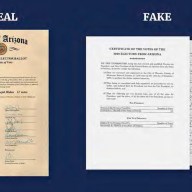It’s no secret that dental assistants are in high demand — just check out the classified ads in any newspaper or job site. So what does a dental assistant do exactly, and how do you know if it’s a career that’s right for you?
Michael Brennan, executive director of the Canadian Dental Assistants’ Association (CDAA), says dental assistants are glue that holds a dental office together.
“A dental assistant is the person working alongside the dentist — the easiest correlation would be a nurse. You monitor the patient, assist the dentist, prepare and sterilize tools,” Brennan said.
Certified dental assistants are also in charge of taking x-rays, doing plaster cast impressions of patients teeth and installing rubber dams and other things in patients mouth. Dental assistants differ from dental hygienists, who are trained to clean and whiten teeth directly.
Dental assistants can also focus instead on the administrative end of a clinic. Trish Divell, president of the CDAA and a working dental assistant herself, runs the front-of-office duties at her clinic, such as handling records and coordinating treatments, like she has done for the past 30 years.
“I’m a people person and I’ve always liked health care, so that’s why I like being up front,” Divell said.
Currently, while most Canadian provinces require working dental assistants to have a formal education, Ontario does not — something Brennan says is responsible for the high rate of turnover in the province.
“The issue right now in Ontario is the amount of turnover among untrained people. There are a lot of dental assistants who have no formal training, so you get a lot of people coming in not knowing what to expect,” Brennan said.
Demand for dental assistants is likely to stay strong in Ontario for another reason — since August 2007, dental hygienists have been allowed to open up their own clinics specializing in non-surgical dental care, such as dental cleanings.
“Dental care is growing and demand is growing. People want whiter smiles and straighter teeth,” Brennan said.
Brenda Moffatt, 55, has been working as a dental assistant since 1973 and says she wouldn’t trade her job for anything else.
“I could not have chosen a better career. I really just love working with people — there is nothing more rewarding than when you have a happy patient,” Moffatt said.
Moffatt graduated from a one-year dental assistant training program at Fanshawe College in London, Ont., at a time when very few people got training, something which she says helped her not only get hired, but feel confident in her job.
“You’re responsible for sterilizing instruments and delivering dental care — you’ve got to know what you’re doing back there,” Moffatt said.
Her advice to people considering a career in dental assisting? Get schooled.
“Research job opportunities in your area and get a formal education. It can be the most rewarding job you’ll ever have,” Moffatt said.
















